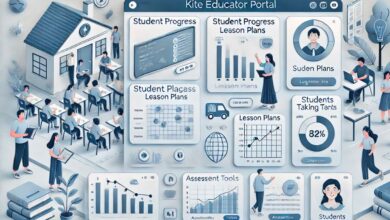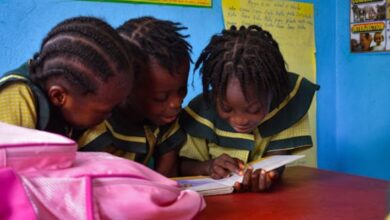Understanding Childhood Education Degree: A Pathway to Shaping Young Minds

The term “childhood education degree” encompasses a broad spectrum of academic programs designed to prepare individuals to educate and care for children from birth to approximately eight years old. This field focuses on equipping future educators with the skills, knowledge, and strategies to nurture children’s cognitive, social, emotional, and physical development during these formative years.
A childhood education degree offers multiple levels of academic achievement, ranging from associate degrees to doctoral programs, and it provides pathways for careers in teaching, early childhood program administration, curriculum development, and education policy.
What is a Childhood Education Degree?
A childhood education degree is an academic program that prepares individuals to teach children at an early age. The program typically includes coursework on child development, learning theory, instructional methods, classroom management, and specific content areas such as math, reading, and science. The goal is to provide future educators with the tools they need to guide young children through their earliest learning experiences.
Many students pursue a bachelor’s degree in early childhood education as the standard entry-level credential for teaching in most early learning environments, such as preschools, daycares, and primary school settings. However, an associate degree can also lead to opportunities, particularly in assistant teaching or child care roles.
The Importance of Early Childhood Education
The early years of a child’s life are critical for development. Research has consistently shown that high-quality early education experiences lead to better cognitive and social outcomes later in life. A childhood education degree provides the training necessary to create enriching environments that promote this early development.
According to developmental theories like those of Jean Piaget, children progress through specific stages of cognitive growth during their early years. Educators trained through a childhood education degree learn how to support children at each stage, using methods that align with their developmental needs. This knowledge enables teachers to build foundational skills in areas such as language, problem-solving, and social interaction.
Curriculum and Coursework in a Childhood Education Degree
The curriculum in a childhood education degree program often includes a combination of theoretical and practical components. Students explore topics such as child psychology, language acquisition, play-based learning, and inclusive education. Courses typically cover:
- Child Development: Understanding the stages of development from infancy through early childhood is crucial. This includes physical, cognitive, and emotional growth.
- Instructional Methods: How to teach young children effectively, including lesson planning, classroom management, and assessment strategies.
- Early Literacy and Numeracy: Specific techniques for teaching reading, writing, and foundational math skills to young learners.
- Special Education: An introduction to working with children with developmental delays or disabilities and implementing inclusive practices.
Career Opportunities with a Childhood Education Degree
Graduates of childhood education degree programs are prepared for a variety of careers within the field of early childhood education. Some of the most common roles include:
- Preschool or Kindergarten Teacher: Teaching young children in formal educational settings, focusing on preparing them for elementary school.
- Childcare Center Director: Overseeing the operations of daycare centers or preschools, including staff management, curriculum development, and ensuring compliance with regulations.
- Curriculum Specialist: Designing educational programs and teaching materials specifically for early childhood education.
- Family Support Worker: Assisting families in providing the best possible early education and care for their children.
Associate, Bachelor’s, and Advanced Degrees in Childhood Education
There are several degree options within the field of childhood education, and the choice often depends on the career goals of the individual:
- Associate Degree in Childhood Education: This degree typically takes two years to complete and prepares students for entry-level positions, such as teacher assistants or daycare providers.
- Bachelor’s Degree in Childhood Education: A more comprehensive four-year program that qualifies graduates to work as lead teachers in early childhood settings, including public schools. This degree is often a requirement for state teaching licensure.
- Master’s or Doctoral Degrees in Childhood Education: These advanced degrees focus on educational leadership, policy development, or specialization in areas like special education or early intervention.
The Role of Play-Based Learning in Early Childhood Education
One of the key teaching strategies covered in a childhood education degree is play-based learning, a method grounded in the idea that young children learn best through hands-on activities and interactions with their environment. This approach allows children to explore, experiment, and discover in ways that are developmentally appropriate.
Educators trained through childhood education degrees often use play to introduce concepts in math, science, and language arts. For example, children might learn basic math skills by counting blocks or develop language skills through storytime and role-playing activities. These methods foster a love of learning in children, setting them on a positive educational trajectory.
Online Programs and Flexibility in Childhood Education Degrees
In response to growing demand, many institutions now offer online programs in childhood education. These flexible options allow working professionals or those with family commitments to earn a degree at their own pace. Online childhood education degrees typically include the same rigorous curriculum as their on-campus counterparts, though students may need to complete in-person practicums or internships at local schools or child care centers to gain hands-on experience.
The Future of Childhood Education Degrees
As research into early childhood development continues to evolve, so too does the field of early childhood education. Innovations in educational technology, an increased emphasis on inclusive education, and new insights into how young children learn best are shaping the future of this profession.
Graduates with a childhood education degree are entering a dynamic field with opportunities to make a significant impact on the lives of young learners. With the growing recognition of the importance of early education, demand for qualified educators is likely to remain strong in the years to come.
Conclusion
A childhood education degree is more than just a pathway to a teaching career; it is a commitment to fostering the potential of young children during the most formative years of their lives. Whether you’re interested in classroom teaching, educational administration, or curriculum development, this degree offers numerous opportunities to make a meaningful impact. For anyone passionate about helping children grow and learn, pursuing a childhood education degree is a rewarding and impactful choice.



